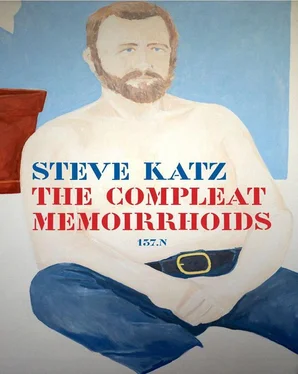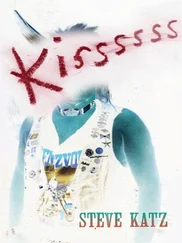It’s an oversimplification to say that my mother was a bitter woman. Her mother had abandoned the family when mom was in her teens leaving her as the oldest daughter to care for an ailing father and the younger children. Before he died my father spent most of my early years as an invalid with a heart condition. She had to take care of him. Her apparent resentment stemmed from a feeling that after all those years devoted to others, no one, not my sister nor myself nor the grandchildren, devoted themselves adequately to her needs. She was genuinely bitter, but canny enough to use that bitterness as a manipulative tool to keep us hopping to her commands. She lived out the last fifteen years of her life in a one room studio apartment at the Greystone Hotel on Broadway and 91st Street. Although she liked to tell us she was too sick to ever leave her room on the way to visit one of us would often spot her coming in from a walk or sitting in the lobby, yakking with her posse of old ladies. When she knew any of us was coming to visit she would place an order that would send us scampering around the city for particular knitting implements or wool, or famously for breadsticks. She was a champion knitter and she gave you a sweater now and then full of love and the obligation to appreciate how much she sacrificed to make it for you.
The visits usually began with her complaints about the breadsticks. They were too hard or too soft or too thick or too long or too skinny. She would talk about what she’s seen on TV, a large Sony given her by my sister, whom she verbally disowned, as she disowned me and my kids at one point. She particularly had it in for Jesse Jackson whom she said she saw on the news collaborating with the Arabs. She was an old fashioned Jewish racist, though she liked the Haitian woman the city sent every week, to shop for her. “But she’s too stupid to buy a good chicken,” my mother said. She warned me not to join the NAACP, or give them money. While you visited the TV was always on. Sometimes she would lower the volume.
A different person emerged if you could get her to talk about her childhood. I often got her there by complimenting her potted plants. She had a jungle of them, and was very proud of her green thumb. Talking plants could relax her, and sometimes she would reminisce about her father. She loved him deeply, though he ended up being a lot of work for her. He emigrated to the US from Pinsk with apparently enough money to buy a small dairy farm near Ellenville, New York. When we lived near Pine Bush in upstate, New York, we would occasionally drive around the back roads to see if we could find the farm. Although details of the farm remained cushioned in her memory, my mother never recognized anything from the road. Talking about it damped the fires of her bitterness, and allowed her to free her sense of humor. She liked to talk about the cows, even remembered some of their names. She deeply loved her father as a farmer. She was just a toddler at the time. Her father was big and powerful back then. Unfortunately strapped for cash he began to milk the clouds, and soon was busted for watering the milk. “He couldn’t sell the milk any more,” she’d say brightly. The farm soon went broke. She almost giggled when she spoke of taking baths in the milk he couldn’t sell. It was a great consolation in her mind, dealing with the poverty that sent the family reeling down to a tenement on the Lower East Side of Manhattan. She spoke so fondly, so sweetly, with such a sense of comedy, of the milk baths her father had provided her with his trespass that you could see the flicker of childhood innocence again in her eyes. Who else, after all, could afford to fill a bathtub with milk? The Queen of England! Ingrid Bergman! Marie de Medici! Eleanor Roosevelt! Jacqueline Kennedy! Hedda Hopper! Lucre-tia Borgia! Judy Garland!
Dan Maratos, who sat next to me in homeroom, told me he was going to Cornell to study Veterinary Medicine. I had as yet had no thoughts about college. I had no encouragement at home, or among relatives, to go for higher education, and little guidance from Stuyvesant where the idea probably was that you should be smart enough to figure it out for yourself. I had applied nowhere. The name of Cornell rang a clear bell of escape in my mind. I decided to study Veterinary Medicine. Agriculture School, where you did pre-vet, was a free school, no tuition. I’d hardly ever been near a cow, a pig, a sheep, a work horse. I never even had a dog. The only pets we ever raised in our apartment were two white rats, Franklin and Eleanor, my sister had for a few months. The Veterinary Profession seemed an honorable one, however, and certainly more attractive than dentistry, which would have been my mother’s choice for me. I was accepted into the program.
To support my application for advanced placement in English at Cornell Mr. Astrakhan, English teacher, adviser of the literary magazine wrote a recommendation. One day, waiting for him in his dark green office, I snuck a peek at it. He said that I wrote poetry of “astounding imagery”. I had never heard the word “imagery” before, or if I had I’d never paid attention to it; but now that it was attributed to me I went back through all my poets — Thomas, Dickinson, Whitman, Eliot, Sandburg, Rukeyser, Cummings, Crane — and I identified the images. Amazing, they were there. I looked for some in my own feeble handful of poems, and couldn’t find any. Just some puny adolescent thoughts. I felt like a charlatan. I didn’t dare go back to Mr. Astrakhan to ask where he’d found my “astounding imagery”. I wasn’t supposed to have seen the recommendation. I was afraid he’d remove “astounding imagery” from his letter. I vowed that from then on I would write astounding imagery forever.
In the evenings, before we head for the concerts, Phil and Candy hire a pedal cab and leave our five star hotel for a romantic ride. To watch them is melancholy and sweet. I taste the melancholy, because I am traveling solo, and to see anyone else’s beautiful romance makes me yearn to be more goosy, simmering in my own love story. This is the Madras music festival. I followed Phil who is here to meet with Ravi Shankar and plan their CD collaboration. He is also fixed to meet Uttapam Srinivas, the sixteen-year-old Carnatic music phenom who became a master of the music at eight years old. Srinivas introduced the electric mandolin into Indian music. When he was four years old he heard the instrument, and fell in love with it, and it triggered his genius. I feel privileged to be on this trip with Rudy and Lynn, Phil and Candy. All of them are old India hands. For me it is an initiation, from arriving at the nearly inoperative sump of the Mumbai airport, to watching the traffic steer around cows that nuzzle garbage in the streets. Some travel, for instance wandering through Europe, is easy on you, the places familiar enough in most detail that they hardly make a dent on your consciousness. Going to India can change your whole perspective on what it means to be human. The experience can push you towards greater understanding, but everywhere you turn you can take a step towards the deep end, and can easily go off.
The Madras music festival is a banquet of Carnatic music, a week of concerts from mid-morning until late into the night. Ravi Shankar, and the great Hindustani singer, Bhimsen Joshi, are the only Northern musicians performing. Carnatic music is ensemble music. They rarely abide well the heroic stance of Hindustani soloists. It is joyful to watch and hear Ravi Shankar, who is pushing eighty, perform for six hours with his daughter, Anoushka. Bhimsen Joshi, whose voice goes from near whisper to oceanic surge can lift you into a space vibrating closer to heaven. Ravi Shankar calls Srinivas the savior of Indian classical music. The sound the young maestro strikes from his mandolin is as sweet and elevating as anything I’ve ever heard. Each note is clear, bell-like, as if a chime is struck and the sound attenuated, bent into melody. At every concert, even the minor ones in the morning, the “tal wallahs” show up, and sit up front, great fans of the music. They slap out the tal (rhythm) on their thighs. Phil does it too. This can pull you further into the music. I try, but can’t keep it up. After one of Srinivas’s performances, Ravi Shankar takes Phil to introduce them. The young maestro falls gracefully to his knees to kiss Phil’s feet. “Bless me, master,” says Srinivas. Phil doesn’t know what to do. He does the best he can, brushing the boy’s head with his piano fingers.
Читать дальше












